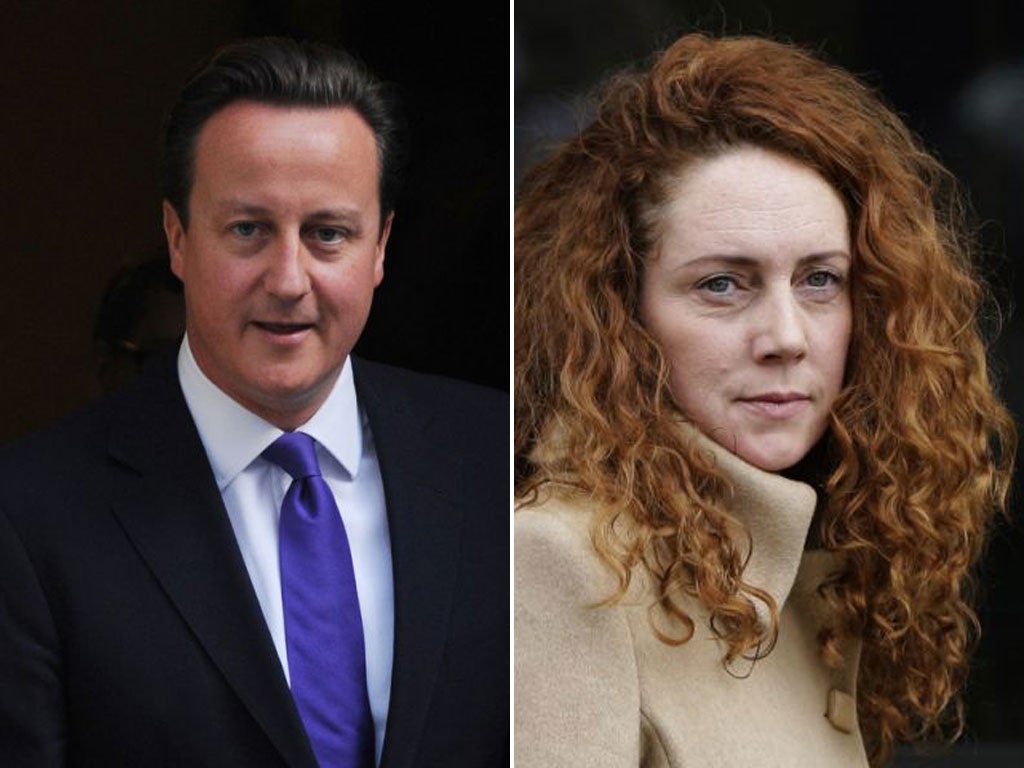The Establishment by Owen Jones, book review

In July 2011, Jeremy Clarkson used his column in the Sunday Times to answer the suggestion that there was something sleazy about the so-called ‘Chipping Norton set’, a circle of friends in Oxfordshire who happened to include in their number Rebekah Brooks and David Cameron.
Determined to puncture the persistent claims of impropriety, he decided to open up about what had gone on at an infamous Christmas party at Brooks’ home the previous year, also attended by James Murdoch. As the phone hacking scandal simmered and the government considered News Corporation’s bid for BskyB, Clarkson wrote, Cameron and Brooks had indeed put their heads together. “What they talked about most of all,” he explained, “is sausage rolls.”
And that, to Jeremy Clarkson, is that: proof positive that this cosy relationship had no bearing on the country’s future. Owen Jones takes a rather different view. In his new book, The Establishment, the young columnist and campaigner seeks to build a detailed portrait of the intangible network of associations and obligations that, in his account, makes the political weather in every sphere from tax policy to policing to the welfare state. And if he doesn’t quite penetrate the sausage-roll circle, Jones does succeed in a timely anatomisation of these deep and largely unacknowledged structures.
Clarkson’s defence is, of course, wilfully shallow. A conversation at a Christmas Party may not mean very much in itself, but when you are charged with adjudicating between competing accounts of News Corporation’s influence in public life, the rest of us will probably feel more able to trust your conclusions if you haven’t shared your view of savoury pastries with one of the key protagonists.
In any case, James Murdoch later acknowledged that, in fact, there had been more going on that night: he and Cameron, he admitted the following year, had discussed the BSkyB bid in “a tiny side conversation” which he couldn’t really remember. To Murdoch, this is proof it meant nothing; to the rest of us, this casual, off-the-books tone may be exactly what is so worrying.
Jones’ attempt at laying all this bare begins with a considerable amount of reporting: his undertaking is built upon dozens of interviews with establishment figures, some of whom would acknowledge themselves as such, some of whom wouldn’t. In one sense, this doesn’t reveal anything new, and probably no-one interested in the book will be surprised to read about the lobbyists who fund the thinktanks that influence the government, or the owners who appoint the editors who set the political agenda, or the tax accountants who get seconded to the civil service that decides how much their clients will pay.
Nor will the matching political argument, which sees the modern establishment as inextricably tied to the defence and promotion of Thatcher’s legacy, come as a shock to those who have read Jones’ columns. I would have loved to read a bit more about the psychology of self-deception that any unapologetic elitist must be practising, but the aim here is really more polemical than that approach would allow. Sometimes, the resulting arguments – about the subtly disastrous, matey groupthink that can permeate any such elite on the one hand, and about the particular political aims that the Establishment’s current incarnation pursues on the other – get elided, so that even though he acknowledges earlier versions of the same phenomenon, he paints the problems it raises as bound up with a hard right agenda.
This feels a bit sneaky. And it raises the connected question of whether Jones himself, a prominent, well-connected figure who knows powerful people on first-name terms, counts as part of the Establishment, or an establishment, anyway. Jones mentions being on the advisory board of Class, a thinktank he praises. I know him slightly from his days working on this paper, and through friends of mine who he knew at Oxford, and I like him; now I’m reviewing his book. Even if no-one’s doing anything untoward on purpose, this is all a bit old-boys-network, isn’t it?
No, he says: “it’s not…a degree of influence that defines whether [someone is] part of the Establishment. It is about power and mentality.” But that seems to suggest that a left-wing agenda pursued by the same nefarious means would be acceptable. In the end, his argument would be more persuasive to sceptics if it were focused on the assertion of proper democracy and not the ideology of those who are quietly circumventing it.
It is plenty powerful all the same. The book’s great strength lies in the simple power of accumulation. Again and again, Jones connects the dots in parallel lines, so that the single examples that might in themselves be dismissed as circumstantial or overblown become more or less unanswerable. Russell Brand recently branded him ‘our generation’s Orwell’, a millstone that you suspect Jones will have greeted with roughly the same enthusiasm that Barack Obama did his premature Nobel Peace Prize, and as much use as a judgement of his achievement. But there is no doubt that he is a writer of real rhetorical force, and I came away from this account suitably disgusted at the patterns he delineates with such insistent clarity.
Jones’ prescription for change is relatively modest, and may even so be unrealistic. All the same, his book will inspire those agree with him to work harder to achieve it. His position as the standard-bearer of a youthful alternative to Westminster’s suffocating consensus seems assured, and perhaps this book will strengthen that group’s hope to build what you might see as an alternative establishment of their own. In the meantime, Jones’ influence only grows. You can bet he won’t be using it to talk about sausages.
Join our commenting forum
Join thought-provoking conversations, follow other Independent readers and see their replies
Comments